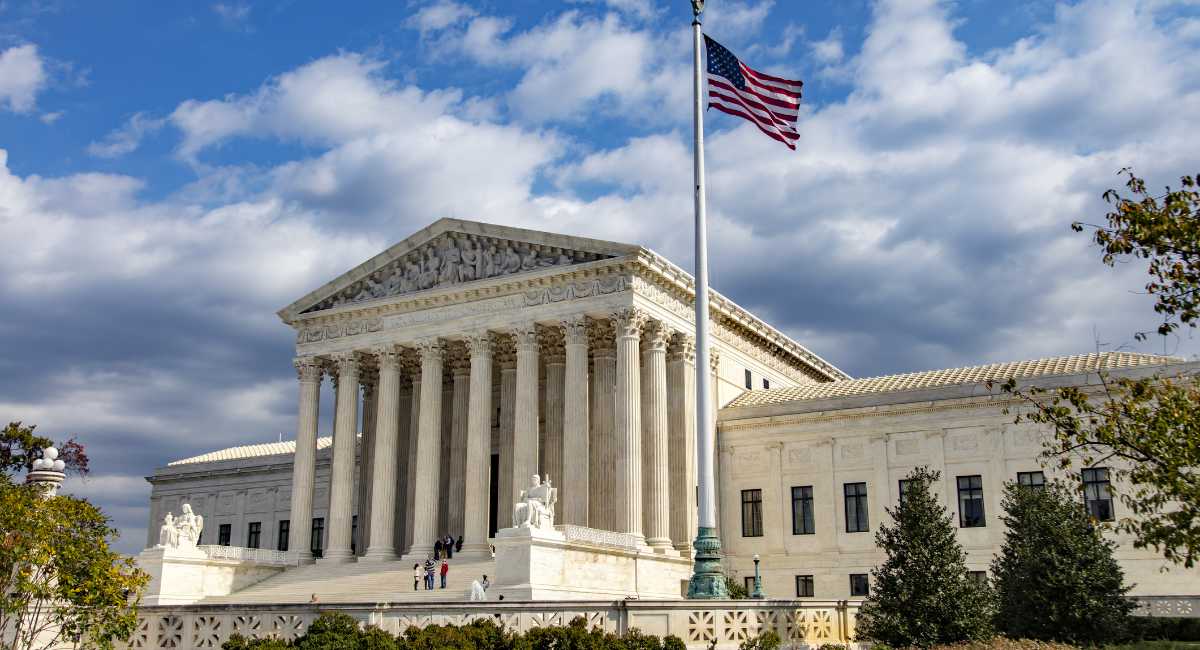The Supreme Court has announced that it will hear the case involving abortion pill restrictions this term — its first case involving abortion since Roe v. Wade was overturned in 2022.
In August, the U.S. Court of Appeals for the Fifth Circuit ruled that mifepristone can remain on the market in Alliance for Hippocratic Medicine v. U.S. Food and Drug Administration — but only under the conditions for use from 2016. The Food and Drug Administration (FDA) expanded the safety requirements (REMS) for mifepristone several times; in 2021, the FDA allowed for mail-order pharmacy distribution, enabling it to be shipped by mail, and eliminating the requirement for it to be dispensed in-person. In 2023, the FDA allowed the abortion pill to be sold at retail pharmacies.
Though the court had called for the prior safety standards to be reinstated, the ruling did not have an immediate impact on the availability of mifepristone, due to a prior order from the Supreme Court that would stay in effect until the Court rules again on the issue or refuses to hear the case on appeal.
The FDA then requested the Supreme Court’s intervention. Danco, the manufacturer of the abortion pill, also asked for the high court to weigh in.
Oral arguments will likely take place in the spring, with a decision expected to come in June. The justices said they would not consider a separate challenge to the FDA’s initial approval of mifepristone in 2000, meaning whatever decision the Supreme Court makes, mifepristone will remain available. It’s been estimated that since being approved, approximately 6 million preborn children have been killed.
Alliance Defending Freedom (ADF) released a statement in response to the news; ADF represented the plaintiffs in the original case. “The FDA harmed the health of women and undermined the rule of law by illegally removing every meaningful safeguard from the chemical abortion drug regimen, including doctor visits and dispensing the drug by mail. Like any federal agency, the FDA must rationally explain its decisions. But FDA failed to do so by bypassing scientific judgment and placing politics ahead of the well-being of women and girls,” the statement read. “Every court so far has agreed that the FDA acted unlawfully by removing common-sense safeguards for women and authorizing dangerous mail-order abortions. We urge the Supreme Court to do the same.”
Texas Right to Life also issued a press release via email, noting (emphasis added):
The Supreme Court will consolidate and hear two cases over the same subject matter sometime next year: F.D.A. v. Alliance for Hippocratic Medicine and Danco Laboratories v. Alliance for Hippocratic Medicine.
A favorable ruling from the U.S. Supreme Court in this case could reduce abortions even in pro-abortion states by limiting the drug’s use to earlier in pregnancy and requiring an in-person visit to a physician. These federal safeguards had been waived by pro-abortion presidential administrations. The court cannot change the status quo in Pro-Life states like Texas where the Right to Life of all preborn children is legally recognized.
The group also added, “This lawsuit does not ask the court to take mifepristone off the market for all purposes. Thus, the ruling can only apply to chemical abortions. While miscarriage treatment can indeed involve similar drugs and procedures as elective abortion, removing a deceased child who passed away by spontaneous miscarriage is legally and morally different than intentionally ending that child’s life, and it is therefore not defined as an abortion.”







